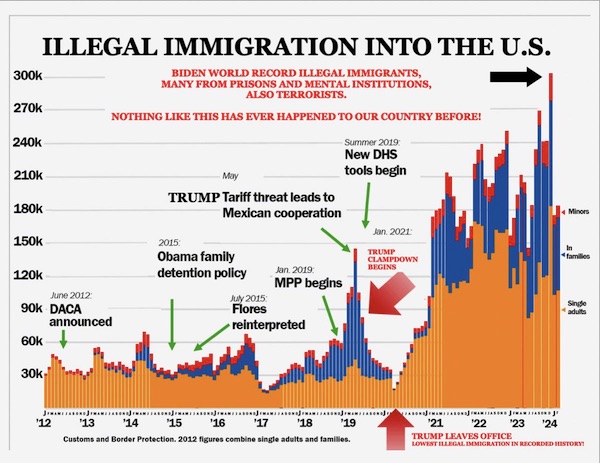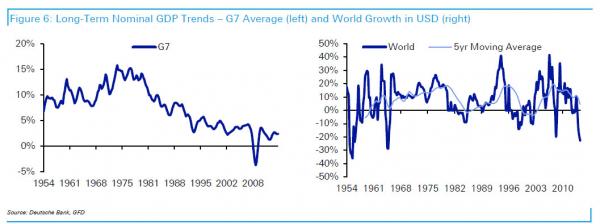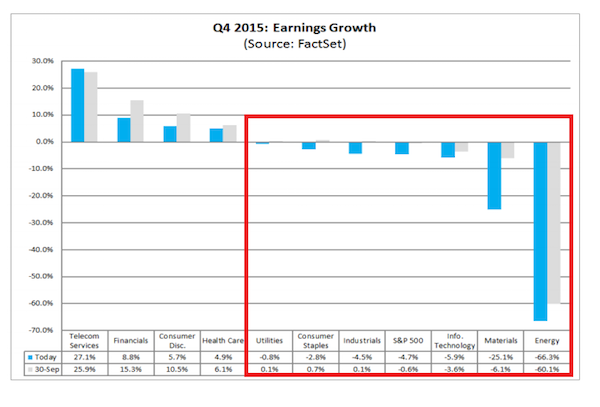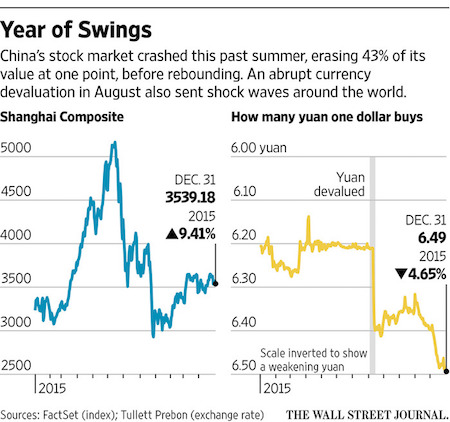
Vincent van Gogh Field with Irises near Arles 1888


Trump post on Truth Social April 1

Lies about Trump
It's over 5 minutes but worth the watch. Bookmark this. Save it. Share it. Anytime you get into an argument with a leftist about media, news media, and propaganda, show them this.
It's terrifying how much damage and mind control the media has over American lives. This is a huge… pic.twitter.com/EPo7lAt3sz
— Sassafrass84 (@Sassafrass_84) April 1, 2024



J6
https://twitter.com/i/status/1774734557998162397



Netflix
https://twitter.com/i/status/1775194637377974655


Targeting consulates and embassies is a road to nowhere good.
• Moscow Condemns Assassination Of Iranian Generals (RT)
Russia has rebuked Israel after an airstrike that demolished the Iranian consulate in Damascus on Monday evening. The attack reportedly killed several Iranian diplomats as well as seven officers of the Islamic Revolutionary Guard Corps (IRGC), including two generals – Mohammad Reza Zahedi and Mohammad Hadi Haji Rahimi. Tehran has vowed to avenge their deaths. The Russian Foreign Ministry said in a statement on Monday that Moscow views as unacceptable any attack on diplomatic missions, which are protected under the Vienna conventions on diplomatic and consular relations. It noted that bombing of the building, located in a residential area, posed a high risk to Syrian civilians.
“We consider it necessary for all responsible members of the international community to declare their positions clearly and give their legal assessments of this action,” the statement said. It warned that Israel could trigger a major regional escalation with its attacks in Syria and other nations in the region. Israel has not commented on the strike, which its usual practice with such operations. Israeli officials have previously acknowledged targeting Iran-linked forces in Syria, with dozens of such raids attributed to the Jewish state over the years. The White House did not immediately comment on the incident. Press Secretary Karine Jean-Pierre said on Monday that Washington was “looking into it”. A national security spokesperson quoted by Axios said the US “had no involvement in the strike and we did not know about it ahead of time.” A senior US official told the news outlet that Washington “has communicated this directly to Iran”.
Israel notified its key ally minutes before the strike took place, when its fighter jets were already in the air, the Axios article said. The Israelis allegedly said they were going to kill General Zahedi, but did not offer details of their operation, such as his location at the Iranian consulate. General Zahedi was a senior commander with the Quds Force, the IRGC unit responsible for operations on foreign soil, while General Rahimi was his deputy. Iranian General Qassem Soleimani, who was assassinated in a US drone strike during a visit to Iraq in January 2020, was the commander of the same division.

“So I think Iran’s response would be two-fold in a manner that is not satisfying the Israeli aim of widening the war..”
• Israel Attack on Iranian Consulate And Netanyahu’s Pending Defeat in Gaza (Sp.)
Israel’s attack on the Iranian consulate in Syria suggests that it is trying to “widen” the ongoing conflict in the Gaza Strip by drawing Iran into it, said Foad Izadi, an associate professor at the University of Tehran’s Department of American Studies. “They have been trying to start a military confrontation between the United States and Iran for many years. And they think that they have an opportunity to have this done fighting Iran using American soldiers,” he told Sputnik, apparently suggesting that the US would be quick to leap to Israel’s defense if the latter were threatened by Tehran. Izadi also remarked that Israel displayed a blatant disregard for international law by attacking a diplomatic compound, which is a violation of the Vienna Convention. “That is what Israelis are trying to do. Netanyahu realizes that he has lost the war in Gaza. He has managed to kill more than 30,000, mostly women and children, without achieving any goals except killing these people and ruining their homes,” Izadi said.
“They say that they want to destroy Hamas, but that’s not a goal they can achieve. Obviously, they would have done that if they could. That’s why criminal acts and genocide in Gaza continue. And Netanyahu realizes that sooner or later this war needs to end. And that would be the end of his prime ministership. And so he’s trying to prolong the war, he’s trying to widen the war,” Izadi added. Noting that Iran’s attempt to seek justice via the UN Security Council may be unsuccessful due to the likelihood of the US vetoing a resolution critical of Israel, Izadi suggested that Tehran may opt to “cause pain for the Israelis so that these types of actions are not repeated.” “Because Iranian officials realize that if there is no pain in engaging in this type of activity, then they will continue,” he elaborated. “So I think Iran’s response would be two-fold in a manner that is not satisfying the Israeli aim of widening the war. I think that’s what Iranian leaders will do.”
WCK
https://twitter.com/i/status/1775063630494720093
Gaza
These two volunteers, cooking food for starving children in Gaza were murdered in a targeted Israeli strike.
The Zionist terror unleashed on Gaza has zero conscience or capacity for compassion.
Boycott and isolate Israel now. pic.twitter.com/4oloNDMv7E
— Chay Bowes (@BowesChay) April 2, 2024

Did they form it or was it already there?
• Shia Army: How Iran Formed A Ring Of Enemies Around Israel (Juma)
On Monday, the Israeli Air Force struck a building near the Iranian embassy in the Syrian capital. As a result of the attack, the consulate building was destroyed and the commanders of the Iranian Islamic Revolutionary Guard Corps (IRGC) unit, Generals Mohammad Reza Zahedi and Mohammad Hadi Haji Rahimi, were killed. President Ebrahim Raisi has already warned that “this unfair crime won’t go unanswered.” “Zionists must know that they will never achieve their sinister goals with such inhumane actions and, day by day, the resistance front and the disgust and hatred of free nations against their illegitimate nature are being strengthened, and this cowardly crime will also not go unanswered,” he said. What the answer will be is still unknown. However, in recent years, Tehran has managed to become a full-fledged superpower in the region, with support in many countries in the Middle East.
The escalation of the conflict in Gaza, which started with the Hamas-led invasion of Israel last October (“Operation Al-Aqsa Flood”) and the Israel Defense Forces’ (IDF) subsequent military operation that claimed tens of thousands of lives, gave rise to much speculation about the weakness and short-sightedness of the Israeli leadership and the exceptional military training of Israel’s opponents. And it’s not just Hamas that we’re talking about, but Iran. Iran was immediately accused of being involved in the Hamas attack. The WSJ reported that Iran had trained the Palestinians and instructed them on how to break through the Israeli border. Moreover, it was said that Tehran had green-lighted the attack. The detailed coordination of the operation allegedly took place during a meeting between senior members of Hamas, Hezbollah, and two other Iran-backed militant groups in Beirut shortly before October 7. Officers of the IRGC also attended the meeting.
Later, the IRGC stated that the Hamas attack had been planned as revenge for the 2020 murder of the head of the Quds Force (part of the IRGC), General Qassem Soleimani. However, rumors about Iran’s direct involvement in the anti-Israeli operation haven’t been verified. On November 3, 2023, the secretary general of the Lebanese movement Hezbollah, Sayyed Hasan Nasrallah, publicly stated that Iran had not been involved in operation Al-Aqsa Flood. “The decision behind this operation was 100% Palestinian, and its implementation was 100% Palestinian. [It was launched] in order to draw the attention of the whole world to this problem. Its planners hid it from everyone, even from the movements of the Axis of Resistance,“ he said. “Absolute secrecy is what ensured the brilliant success of the operation through the element of astonishing surprise. The Islamic Republic of Iran publicly supports the resistance movements but it does not exercise any guardianship over them [or] over their leaders.”
Ritter
https://twitter.com/i/status/1774948467191767045

“..the judge and attorney general had access to his finances because of the monitorship requirement, saw a figure close to $464 million cash, and decided that was what they were going to make him pay..”
• Trump Posts $175 Million, Preventing Seizure of Buildings in Civil Fraud Case (ET)
Former President Donald Trump has posted $175 million in his New York civil fraud case, meeting the 10-day deadline given on March 25 and staying execution of judgment in the case. The payment prevents any seizure of President Trump’s assets as his appeal of the case is heard. “As promised, President Trump has posted bond. He looks forward to vindicating his rights on appeal and overturning this unjust verdict,” the president’s attorney Alina Habba said in a statement. New York Attorney General Letitia James sued the 45th president in 2022, accusing him of inflating his net worth and defrauding insurers and banks, and therefore the public, in Trump Organization annual statements of financial condition. Eric Trump, Donald Trump Jr., former Trump Organization CFO Allen Weisselberg and comptroller Jeffrey McConney, and several Trump Organization holding companies were named codefendants in the case presided over by New York Supreme Court Justice Arthur Engoron in a three-month bench trial.
The judge ultimately ordered $363 million disgorgement with 9 percent backdated interest, totaling $464 million, with the lion’s share to be paid by President Trump; as well as prohibiting the defendants from holding director positions in any business or legal entity in New York for a period of time, and a minimum three-year monitorship of Trump Organization after which there may be additional penalties. The posting of the judgment amount was not required in order for President Trump to appeal the case, but had been a requirement to stay enforcement of the judgment in the meantime. “I’ll fight this all the way up to the U.S. Supreme Court if necessary,” President Trump told Fox News days before the deadline. “They can’t take away your property before you’ve had a chance to appeal the decision of a Trump-hating, incompetent judge who has been overturned more than any judge in the state.”
Days before President Trump posted bond, he said on social media that he had nearly $500 million in cash but intended to use much of it on his presidential campaign. He accused his political opponents of trying to make him spend that cash fund on legal battles rather than on his campaign for president. State law would have required President Trump to post the full judgment amount within 30 days in order to stay the execution of judgment, but the appellate court lowered the $454 million requirement to $175 million on the last day of the deadline. It gave him a 10-day window to post the new amount, and did not comment on the underlying reasons for the change. President Trump said the appellate division’s ruling was further evidence that the original bond requirement was unreasonable.
“This is a confrontation between a Judge and those that rule above him – A very bad situation in which to place New York State and the Rule of Law!” President Trump stated of the appellate decision. “This is the 5th time in this case that he has been overturned, a record. His credibility, and that of Letitia James, has been shattered.” Justice Engoron, who presided over the bench trial and issued the massive disgorgement figure. The attorney general had asked for $250 million in disgorgement before trial, and changed that number to $370 million near the end of the trial. President Trump claimed in a press conference that the judge and attorney general had access to his finances because of the monitorship requirement, saw a figure close to $464 million cash, and decided that was what they were going to make him pay. He told reporters he did have the cash necessary to stay judgment, but wanted to use it to campaign and not satisfy who he described as “crooked” officials.
Putting all his cash into an escrow account where neither he nor the state could touch it for the duration of the appeal was one option to stay judgment. A bond was another, and would not have required President Trump to move his cash reserves, but would have required him to have higher amounts of cash to serve as collateral—$577 million, by his attorneys’ estimates, after negotiations with 30-plus surety companies fell through. For weeks, defense attorneys argued in the appellate division that securing a $464 million bond was “impossible.” Surety companies just don’t issue bonds that big, they argued. A second problem was that for them to consider doing so they would have needed 120 percent in cash as collateral plus a high premium or two. This came out to be far more cash than Trump Organization had, as a real estate company.
Watters
Trump's been banned from talking about the judge's family in the so-called hush money case in New York. Why? Because the judge's family was paid by the Biden campaign and is currently being paid by Adam Schiff. Trump isn't allowed to say the judge's daughter is a Democrat… pic.twitter.com/q6oVsNBhj2
— Jesse Watters (@JesseBWatters) April 3, 2024

X thread. “If Joe Biden gets reelected, democracy is a freaking joke..”
• It’s This Election That’s The Referendum On Democracy (Tucker Carlson)
Lex Fridman: You said some degree the election was rigged. Was it stolen?
Tucker Carlson: It was a hundred percent stolen. Are you joking?
Lex Fridman: It was rigged to that large of a degree?
Tucker Carlson: Yeah. They completely change the way people vote right before the election on the basis of COVID, which had nothing to do with-
Lex Fridman: So in that way it was rigged, meaning manipulated.Tucker Carlson: One hundred percent. Then you censor the information people are allowed to get, anyone who complains about COVID… Which is like, by the way, it might’ve hurt Trump. But I mean it’s like whatever. I mean you could play it many different ways. You can’t have censorship in a democracy by definition. Here’s how it works. The people rule. They vote for representatives to carry their agenda to the capitol city and get it enacted. That’s how they’re in charge. And then every few years they get to reassess the performance of those people in an election. In order to do that, they need access, unfettered access to information. And no one, particularly not people who are already in power, is allowed to tell them what information they can have.
They have to have all information that they want, whether the people in charge want it or don’t want it or think it’s true or think it’s false, it doesn’t matter. And the second you don’t have that, you don’t have a democracy. It’s not a free election, period. And that’s very clear in other countries, I guess. But it’s not clear here. But I would say it’s this election that… It took me a while to come to this, but it’s this election that’s the referendum on democracy. Biden is senile. He’s literally senile. He can’t talk, he can’t walk. The whole world knows that, leave our borders. Everybody in the world knows it. A senile man is not going to get elected in the most powerful country in the world unless there’s fraud, period. Who would vote for a senile man? He literally can’t talk. And nobody I’ve ever met thinks he’s running the US government because he’s not. And so I think the world is looking on at this coming election and saying… And a lot of the world hates Trump. Okay, it’s not an endorsement of Trump, but it’s just true. If Joe Biden gets reelected, democracy is a freaking joke. That’s just true.
Lex Fridman: You said some degree the election was rigged. Was it stolen?
Tucker Carlson: It was a hundred percent stolen. Are you joking?
Lex Fridman: It was rigged to that large of a degree?
Tucker Carlson: Yeah. They completely change the way people vote right before the… pic.twitter.com/j991orFZB2— Camus (@newstart_2024) April 2, 2024

“The Institute “has been trying to avoid surveys directly related to the military action” because mobilization is a “sensitive issue” of state policy..”
• Just 8% of Ukrainians Ready To Take Up Arms Against Russia (RT)
Most Ukrainians expect their country to win in the armed conflict with Russia, but just 8% are willing to fight to further their cause, the head of a leading Kiev-based polling agency has claimed, in an interview published on Tuesday. The Ukrainian leadership has said that it is seeking to boost the military’s ranks by up to 500,000. Additional troops are required to relieve forces on the frontline, some of which have not been properly rotated in years, the Ukrainian Defense Ministry has claimed. Vladimir Paniotto of the International Institute of Sociology discussed how the Ukrainian people’s worldview is reflected in research conducted by his organization with local news outlet Ukrainskaya Pravda.
They tend to “wish for conflicting things,” he mused, such as capitalist liberalization alongside robust social support by the state, or democracy as well as the “strong arm” of the government. The conundrum is present in what Ukrainians are willing to do to defeat Russia – an outcome that they overwhelmingly believe will end the ongoing hostilities. ”Certainly, many people are willing to act, to send donations or work as volunteers,” Paniotto said. “But facing a direct risk to life and taking part in military action – that is much harder… We estimate that the share of those willing to take arms is roughly 8% across all categories.” The figure may be overestimated, since the pollster takes the responses at face value without conducting follow-up studies to confirm the respondents’ true intentions. The Institute “has been trying to avoid surveys directly related to the military action” because mobilization is a “sensitive issue” of state policy, he explained.
The Ukrainian parliament is considering a major reform of the military system, which would facilitate the draft, including by imposing serious penalties for evasion. Fighting-age Ukrainian men residing in foreign nations, for example, would not be able to replace their expired passports without the consent of a conscription officer after the bill goes into force, MP Fyodor Venislavsky told the media last week. The lawmaker is a member of the parliamentary Committee for National Security, Defense and Intelligence. The Russian military said on Tuesday that Ukrainian frontline losses since January have surpassed 80,000.

No wonder there are few volunteers.
• Kiev Has Lost More Than 80,000 Troops Since January – Russian MoD (RT)
Ukrainian forces have lost more than 80,000 troops since the beginning of the year, Russian Defense Minister Sergey Shoigu said on Tuesday, adding that the Russian military is continuing to reduce “the enemy’s combat potential.” More than 14,000 units of military hardware have also been destroyed by Russian forces since January, including 1,200 tanks and other armored combat vehicles. During the same period, Moscow has liberated some 403 square kilometers of Russia’s new territories, Shoigu said. Despite Kiev’s lack of success on the battlefield, the Ukrainian leadership “is still trying to convince its Western sponsors of its ability to resist the Russian Army,” he said. To do so, Kiev has resorted to terrorism and long-range strikes on Russian territories, targeting the civilian population, the minister added.

Not the first time..
• West to Use Hypothetical Russia-Ukraine Talks to Supply Arms to Zelensky (Sp.)
The West will use hypothetical negotiations between Moscow and Kiev to supply weapons to Ukraine and to regroup its forces, Konstantin Gavrilov, the head of the Russian delegation at the talks in Vienna on military security and arms control, told Sputnik. “Even if we imagine the hypothetical possibility of resuming negotiations, it is clear that the [Kiev] regime’s curators will use them to give the Ukrainian armed forces time to rest, pump them up with weapons, and complete a regrouping of troops,” Gavrilov said in an interview dedicated to the 75th anniversary of NATO marked on April 4. The North Atlantic Treaty was signed in Washington, D.C. on April 4, 1949.
A repeat of a scenario that emerged after the March 2022 talks in Istanbul when the Ukrainian armed forces received time to rest is unacceptable for Russia, Gavrilov added. Gavrilov also said that the West will use hypothetical negotiations between Moscow and Kiev to supply weapons to Ukraine and to help Kiev regroup its forces. “We have been through this before after the Istanbul talks in the spring of 2022, and the repetition of such a scenario is unacceptable to us. Therefore, at the moment, the future of the Ukrainian conflict is being decided on the battlefield, where our troops hold the initiative along the entire front line,” Gavrilov said in an interview dedicated to the 75th anniversary of NATO marked on April 4.

“If Ukraine’s position weakens, there may be a ‘rallying behind the flag effect’ more favorable to the forces in place..”
• Ukraine’s Defeat May Help EU Establishment (RT)
With polls showing ‘nationalist’ parties surging in popularity ahead of the upcoming European Parliament election, Kiev’s worsening situation could prove useful to the bloc’s powers that be, according to a new book by French investigative journalist Charles Sapin. Most of the EU has been outspoken in supporting the Ukrainian government in the conflict with Russia, sending an estimated €77 billion ($83 billion) worth of weapons, equipment, ammunition and even cash to Kiev. Sapin’s analysis, however, implies that bad news from the battlefield could bolster the European People’s Party (EPP) and the second-largest group, the Progressive Alliance of Socialists and Democrats (S&D) in upcoming elections. “If Ukraine’s position weakens, there may be a ‘rallying behind the flag effect’ more favorable to the forces in place,” he was quoted as saying by Politico EU on Monday.
Sapin is a reporter for the weekly Le Point who spent six years researching what he calls the “nationalist” parties that form the Identity and Democracy (ID) bloc in the European parliament – such as Hungary’s Fidesz, Portugal’s Chega, Spain’s Vox, France’s National Rally, Brothers of Italy and the Sweden Democrats. The final result was the book called ‘Les Moissons de la Colere’ (The Harvests of Wrath), presented as a deep dive into “nationalist Europe.” One major weakness of the parties in the ID grouping, according to Sapin, is that they have different opinions on the Ukraine conflict. Nationalists’ numbers might be rising but they are “isolated” in Brussels because of their particularism, he contends. Their victories in the upcoming election would move the needle to the right, but to the benefit of the EPP, currently the majority group. This may help explain why French President Emmanuel Macron brought up Ukraine at a recent brainstorming session about the upcoming elections.
Amid the strategy discussions the French leader suddenly voiced a concern that Ukraine “could fall very quickly,” according to sources that spoke with Politico. He then set up a ‘New Europeans’ coalition, an alliance of liberal parties from France, Denmark, Poland, Romania and Slovenia. Hungarian Prime Minister Viktor Orban – long the sole dissenter when it came to aiding Kiev – doubled down on calls for a ceasefire in Ukraine and a negotiated peace. According to Sapin, parties like Orban’s have gained power thanks to semantic tricks and ideological acrobatics, converting “old bourgeois” voters by talking about immigration, identity and the environment and abandoning calls for leaving the EU. His book includes insights from both the closest political advisers to Orban, from Italian PM Giorgia Meloni and French presidential candidate Marine Le Pen – and from their political enemies.

“Bucha” has become a curious narrative.
• Stop Covering Up Kiev Role In Bucha Events – Zakharova (TASS)
Russia is calling upon international organizations to stop covering up for the Kiev regime and its role in perpetrating the events almost two years ago in the Kiev suburb of Bucha, and instead to push for a thorough investigation, Russian Foreign Ministry Spokeswoman Maria Zakharova said in a comment ahead of the second anniversary of what she called the staged incident in Bucha. “Once again, we demand that international organizations stop covering up for the Kiev regime and instead work toward conducting a thoroughgoing investigation that will, at long last, disclose the names of those killed, the time and cause of their deaths <…> as well as of those responsible for that terrible crime committed by the Kiev regime,” Zakharova said.
Meanwhile, numerous previous calls by Russia for international organizations, including agencies of the United Nations, to conduct a serious investigation of precisely what transpired in Bucha two years ago have to date remained unanswered, the Russian diplomat added. “Multiple Russian calls on international organizations, including appeals to UN Secretary General Antonio Guterres and UN High Commissioner for Human Rights Volker Turk, to investigate every detail of what happened <…> in Bucha or [reveal] other information remain unanswered,” Zakharova lamented. “It shows that the organizers of that deadly operation have something to conceal,” she said. According to Zakharova, this year, Ukrainian officials will be pursuing the goal of preventing the international community from focusing too much on the dire situation in Ukraine and along the line of engagement.
Russian Investigative Committee Chairman Alexander Bastrykin said in April 2022 that a criminal investigation had been launched under Article 207.3 of the Russian Criminal Code (“Public Dissemination of False Information about the Use of the Russian Armed Forces”) following a Ukrainian false flag operation in Bucha, a suburb of Kiev. He noted that the Ukrainian Defense Ministry had provided video footage purportedly taken in Bucha to Western media outlets, describing it as proof of mass killings of civilians, in a bid to discredit the Russian Armed Forces. However, statements made by the mayor of Bucha on March 31, 2022, combined with other reports, have substantiated the fact that the Russian Army pulled out of the town on March 30. Moreover, a video filmed by Ukrainians that surfaced on social media immediately after the withdrawal of Russian troops made no mention at all of the alleged killing of civilians in the town.

X thread by Arnaud Bertrand.
• Why ISIS Is Now Targeting Geopolitical Enemies Of The West (Ma Xiaolin)
[..] a top Chinese international relations scholar (Ma Xiaolin, director of the Institute for Mediterranean Studies at Zhejiang International Studies University) shares his view on why ISIS is now targeting geopolitical enemies of the West. I translated his article in full (original in Chinese here: https://tidenews.com.cn/news.html?id=2754250) below:
“On March 26th, a commuter vehicle for the Dasu Hydropower Project in Khyber Pakhtunkhwa Province, Pakistan, was attacked by terrorists, resulting in the deaths of five Chinese personnel and one Pakistani staff member. This was the second such suicide bombing attack on the project in three years, with “Islamic State Khorasan Province” (ISKP) being a major suspect. Prior to this, on March 22nd, a serious terrorist attack occurred near Moscow, killing 143 people and injuring nearly 200, with ISKP claiming responsibility. On January 3rd, a series of suicide bombings in Kerman, Iran, killed nearly a hundred people, with ISKP also claiming responsibility. Within three months, Iran, Russia, and China became targets of terrorist attacks, indicating that the Islamic State, which had long considered the US and Europe as enemies, is changing its attack direction, increasingly targeting countries considered adversaries by the US and Europe.
This represents a new trend of turning enemies into friends and shifting disaster eastward, along with submitting a declaration of intent to traditional foes. Following the Moscow attack, Russian security agencies arrested eight suspects, confirming them to be Tajikistan nationals hired for the attack. This atypical “Islamic State” terrorist attack, which involved fleeing instead of a suicide mission, was immediately claimed by ISKP, which also released on-site video evidence. Before the end of 2017, the Islamic State was essentially defeated as a territorial entity, suffering a fatal blow and being forced to disband and go underground, with its focus shifting from West Asia to Central Asia. The Khorasan branch, active in Afghanistan and Pakistan, became the main force, taking up the banner of terrorism and frequently acting, gradually adjusting its survival rules and strategic direction.
Over the years, there have been signs that the Islamic State’s targets for revenge have clearly shifted to Eastern countries, no longer viewing the US and Europe as primary enemies, and completely deviating from its original goals of ending US global dominance and “liberating Palestine”. In the past six months, the Israeli-Palestinian conflict has caused heavy casualties. The Iran-led “Axis of Resistance” has pressured Israel in various ways, with China and Russia also actively promoting a ceasefire. However, the Islamic State has launched attacks on Iran, Russia, and even China, leading some to speculate that it may have aligned with the United States or even come under control of Israel’s Mossad.
Despite the US indirectly or directly warning Iran and Russia of Islamic State attacks, suspicions remain. The defeat of the Islamic State in the Middle East was a collective achievement of the international anti-terrorism alliance, credited to both the US-led 62-nation coalition’s continuous airstrikes and the close cooperation of the “Shia Crescent” led by Russia and Iran, especially in ground combat and siege warfare. However, the continuous attacks by Islamic State remnants on Iran and Russia, ignoring the reality of “Israel killing people with American knives,” indicate their use of complex geopolitical conflicts to adjust policies and directions, seeking survival by allying with former enemies.

“President Biden is the first candidate in history – the first president in history that has used the federal agencies to censor political speech, so to censor his opponent.”
• Biden a ‘Threat To Democracy’ – RFK Jr (RT)
President Joe Biden could be a bigger danger to US democracy than former president and presumptive 2024 election rival Donald Trump, another presidential candidate, Robert F Kennedy Jr, has said. Biden is the first president in US history to mobilize federal agencies to silence his political opponents, the politician stated. Speaking on CNN on Monday, Kennedy Jr pointed to his being blocked on various social media platforms during Biden’s term in office and branded this as an effort to “censor political speech” that violated the First Amendment of America’s constitution. He also attributed the ‘censorship’ to pressure from the White House. Pressed by CNN’s Erin Burnett on who he believes poses a bigger threat to democracy, Kennedy stated that he still views Biden as a bigger danger, even though Trump played a role in the January 6 riot at the US Capitol.
“The question was, who is a worse threat to democracy? And what I would say is … I’m not going to answer that question. But I can argue that President Biden is, because the First Amendment, Erin, is the most important,” the candidate told presenter Erin Burnett. “I can make the argument that President Biden is the much worse threat to democracy, and the reason for that is President Biden is the first candidate in history – the first president in history that has used the federal agencies to censor political speech, so to censor his opponent.” The politician’s Instagram page was suspended in 2021 over what its parent company, Meta, described as “repeatedly sharing debunked claims about the coronavirus or vaccines.” The account was reinstated in 2022, shortly after Kennedy announced his election campaign. In December, the Supreme Court barred him from joining a challenge to a case dealing with the Biden administration’s communication with social media platforms over posts the government considered disinformation. The politician also had a similar case pending in a lower court.
Last year, Kennedy testified before the House Judiciary’s subcommittee on the weaponization of the federal government, where he spoke as part of a House Republicans’ inquiry into alleged social media censorship against conservatives. The politician also made freedom of speech a focus of his presidential campaign. Kennedy, 70, is the son of former US Attorney General Robert Kennedy and the nephew of former US President John F Kennedy, each of whom was assassinated during the 1960s. He has gained notoriety recently for being a prominent critic of vaccines, in addition to calling for an end to “proxy wars” conducted by the US – but some of his critics have dismissed many of his positions as being conspiratorial in nature. The former Democratic Party candidate is now campaigning as an independent ahead of the November vote.
RFK
https://twitter.com/i/status/1774977436561670316
https://twitter.com/i/status/1775338106398372288

“The crafted fake news narrative of everything starting from the day of the Russian invasion will no longer wash once Russian forces overthrow the Zelensky government and the West will be humiliated beyond its wildest nightmares..”
• Biden Sinks To New Lows Over Moscow Bombing And RussiaGate Fake News (Jay)
Are we all preparing for the inevitable? Trump returning to the White House? It would seem that certainly the Biden administration is doing just that given recent events. Moscow’s terror attack has taken centre stage of world news in recent days yet not one western journalist seems able to call out the ISIS warning from the U.S. for what it was: sham. And not only the warning was disingenuous but the sheer bad taste vitriol of Washington which was on a level only matched by the suspicious outright and swift rejection that Kiev had no part in the attack. Bad taste seems to be the hallmark of the Biden administration with a failed foreign policy which trails in second place. If Americans didn’t know before that the U.S. could not control two proxy wars on two separate fronts, now they know. As the aid parcels which drop onto Palestinians – sometimes even killing them – makes a statement in itself, it’s interesting to see how Biden is always looking in the past in almost everything he does.
Even RussiaGate has been dragged out of its dank grave and had new life breathed into by Biden’s press people who are now preparing the American public for a Biden failure in December. The biggest fear for Biden is the “hack and leak” attack which pushed many democrats over a line with Hillary Clinton when her emails revealed what an utterly morose political figure she is. Who could forget that “there are terrorists there [in Syria] but they’re on our side” comment when talking about the early days of the Syrian crisis which started in 2011? For Biden, there must be many troves for the Russians to leak at the given moment, with corruption in Ukraine being at the top of the list. But one salient question might be, does Putin even need to worry about “election interference”? This comical expression, coined by the Americans and slung at Moscow is done in such a fashion as to trick the humble observer that it was a dirty Russian invention despite the Americans practically inventing the practice and using it to their own means for the last 70 years in Latin America.
The reality is that Putin doesn’t need to interfere. He’s on a win-win ticket as, if Biden is re-elected the then senile U.S. president will be defeated in Ukraine and the American people will not only see all of the corruption stories emerge from that country but also the link between the Obama administration’s election meddling in 2014 to overthrow a Russian-aligned leader and today’s war. The crafted fake news narrative of everything starting from the day of the Russian invasion will no longer wash once Russian forces overthrow the Zelensky government and the West will be humiliated beyond its wildest nightmares into signing whatever is handed to them. This, in part, explains how the NATO press machine – and most European governments – are going into overdrive on the subject of the need to beef up Europe’s military capabilities. This is entirely a ruse to act as a distraction for when Kiev falls and western elites are ready with their soundbites. The Russians are coming. We told you so.

“As the Court stated at the hearing, Defendant filed his motion without any evidence..”
• Judge Denies Hunter Biden Motions to Dismiss Tax Charges (Turley)
Despite hours of argument by the counsel for Hunter Biden, U.S. District Court Judge Mark Scarsi denied his eight motions to dismiss tax charges with a stringing rebuke that the defense omits one thing from its argument: actual evidence. Hunter Biden has been arguing that he is the victim of selective prosecution despite a documented history of receiving special treatment as the son of the President. However, he has proven a key witness against himself in swatting down defenses raised by his counsel and publishing self-incriminating facts in his book. The filings also did not address the fact that the Justice Department not only allowed the statute of limitations to run on major crimes, but sought to finalize an obscene plea agreement with no jail time for Hunter. It only fell apart when a judge decided to ask a couple of cursory questions of the prosecutor, who admitted that he had never seen an agreement this generous for a defendant.
Special Counsel David Weiss noted in his filing that they filed new charges only after Hunter’s legal counsel refused to change the agreement and insisted that it remained fully enforceable. One only has to look at the series of superseding indictments against Sen. Bob Menendez, D-N.J., to see how Hunter continues to receive special treatment. Rather than the four original counts, Menendez now faces 18 counts with his wife, Nadine Arslanian Menendez, and alleged co-conspirators Wael Hana and Fred Daibes. What is most notable is not the proliferation of counts but the lack of comparative charges in the pending case against Hunter Biden. Some of us have long raised concerns over the striking similarity in the alleged conduct in both cases, but the absence of similar charges against the president’s son. Judge Scarsi made fast work of the Biden filings as entirely insufficient to dismiss these charges. Abby Lowell and the defense team seem to be doubling down on the same claims despite the uniform rejection by courts.
The judge noted: “As the Court stated at the hearing, Defendant filed his motion without any evidence. The motion is remarkable in that it fails to include a single declaration, exhibit, or request for judicial notice. Instead, Defendant cites portions of various Internet news sources, social media posts, and legal blogs. These citations, however, are not evidence.” Lowell disagreed with the court’s order and pledged “to vigorously pursue Mr. Biden’s challenges to the abnormal way the Special Counsel handled this investigation and charged the case.” In truth, the “abnormal” treatment of Hunter was giving him advance notice of attempts to interview him and searches of Biden property. It was allowing the statute of limitations to run despite having an agreement on the table to keep potential felonies alive. It was trying to secure a plea agreement that even the prosecutor admitted in court was like nothing he had ever seen in his career.
The court even makes reference to Schrödinger’s cat, a paradox suggested by physicist Erwin Schrödinger in 1935 that a cat in a thought experiment could be viewed simultaneously both alive and dead: “The Court understands that its decision rests on an interpretation of the agreement neither party advocated—that the Diversion Agreement is a binding contract but performance of its terms is not yet required. The Court, therefore, invites the parties to stipulate to further pretrial motion practice to the extent there are additional disputes that arise from the Court’s Schrödinger’s cat-esque construction of Defendant’s immunity under the Diversion Agreement.”
Bobulinski
TC Shorts The Man in the Arena: Tony Bobulinski pic.twitter.com/C50ejfcRhz
— Tucker Carlson (@TuckerCarlson) April 2, 2024

“April Fools! Only kidding. Obviously, the people mentioned in the above tweets aren’t women at all, but men, every last one of them.”
• “#arrestme”: JK Rowling Dares Scotland to Enforce Anti-Free Speech Law (Turley)
We have previously discussed the growing anti-free speech movement in Scotland with the expanding criminalization of political and religious speech. The new Scottish law is a perfect nightmare for free speech, expanding the potential of a jail sentence for merely insulting language. In response, author JK Rowling has taken a stand and dared the Scottish police to come and arrest her for criticizing transgender status. The Hate Crime and Public Order (Scotland) Act 2021 illustrates how these laws create a slippery slope of speech criminalization as more and more speech is banned. We previously discussed the law when it was first introduced. The new crime covers “stirring up hatred” relating to age, disability, religion, sexual orientation, transgender identity or being intersex. That crime covers insulting comments and anything reasonably “that a reasonable person would consider to be threatening or abusive.”
It is enough that a person is found to have likely understood that the comments would be abusive or insulting as opposed to intending to be abusive or insulting. For that ill-defined crime, you can be sent to jail for seven years. Police officers are currently being given a two-hour training program to enforcing the law. Rowling has been the target of a global campaign due to her rejection of transgender laws and policies. Many on the left have unleashed book bans and burnings. I have been critical of that campaign. Even third parties who have supported Rowling’s right to free speech have been targeted in cancel campaigns. On April 1, Rowling posted a reference to various trans campaigners and other individuals as women. She then ended the thread with “April Fools! Only kidding. Obviously, the people mentioned in the above tweets aren’t women at all, but men, every last one of them.”
She stated “Freedom of speech and belief are at an end in Scotland if the accurate description of biological sex is deemed criminal.” Even if meant as a joke, Scottish censorship laws have never been a laughing matter with comedians raising objections. That could clearly fall within the law. The law is so broad that it allows arbitrary enforcement. To that end, Rowling made it plain: “I’m currently out of the country, but if what I’ve written here qualifies as an offence under the terms of the new act, I look forward to being arrested when I return to the birthplace of the Scottish Enlightenment.#arrestme.” The law is a disgrace, but hardly new. Free speech has been in a free fall in the United Kingdom as well as other Western countries. I discuss this trend in my new book, The Indispensable Right: Free Speech in an Age of Rage.
The decline of free speech in the United Kingdom has long been a concern for free speech advocates. A man was convicted for sending a tweet while drunk referring to dead soldiers. Another was arrested for an anti-police t-shirt. Another was arrested for calling the Irish boyfriend of his ex-girlfriend a “leprechaun.” Yet another was arrested for singing “Kung Fu Fighting.” A teenager was arrested for protesting outside of a Scientology center with a sign calling the religion a “cult.” We also discussed the arrest of a woman who was praying to herself near an abortion clinic. English courts have seen criminalized “toxic ideologies” as part of this crackdown on free speech. Scotland has now pulled ahead in the race to the bottom of speech criminalization. The home of David Hume and Adam Smith is now imposing laws as stringent as those founds in Iran, Russia, and China. It is a shocking denial of a right that once defined Western Civilization




Legend
When legend recognizes legend pic.twitter.com/yuB21Utn6N
— Historic Vids (@historyinmemes) April 2, 2024

Hitchens
MIC DROP: Peter Hitchens unapologetically exposes the ludicrous nature of Net Zero, to the horror of BBC Question Time panellists and audience members.
"We didn't just close down our coal fired power stations, we blew them up, we were so certain we were right to do so. At the… pic.twitter.com/6g0qcQekbb
— Wide Awake Media (@wideawake_media) April 2, 2024

VdB
https://twitter.com/i/status/1775285512426660206

1903
Millionaire speaks about the biggest industry in the world in 1903 pic.twitter.com/etJl722xuB
— Historic Vids (@historyinmemes) April 2, 2024



Baby owl
Caretaker using a puppet and tweezers to feed a rescued baby owl pic.twitter.com/qThwEsDXNd
— Nature is Amazing ☘️ (@AMAZlNGNATURE) April 2, 2024

Alien
Alien hug pic.twitter.com/jggFviHfyN
— Cassandra MacDonald (@CassandraRules) April 2, 2024

Catfish
— Why you should have a cat (@ShouldHaveCat) April 2, 2024

Baby elephant
Baby elephant interrupts a TV Reporter in Kenya. pic.twitter.com/OYSnX7AoK6
— Nature is Amazing ☘️ (@AMAZlNGNATURE) April 2, 2024

Faa Sai
https://twitter.com/i/status/1775051957352235364


Support the Automatic Earth in wartime with Paypal, Bitcoin and Patreon.














